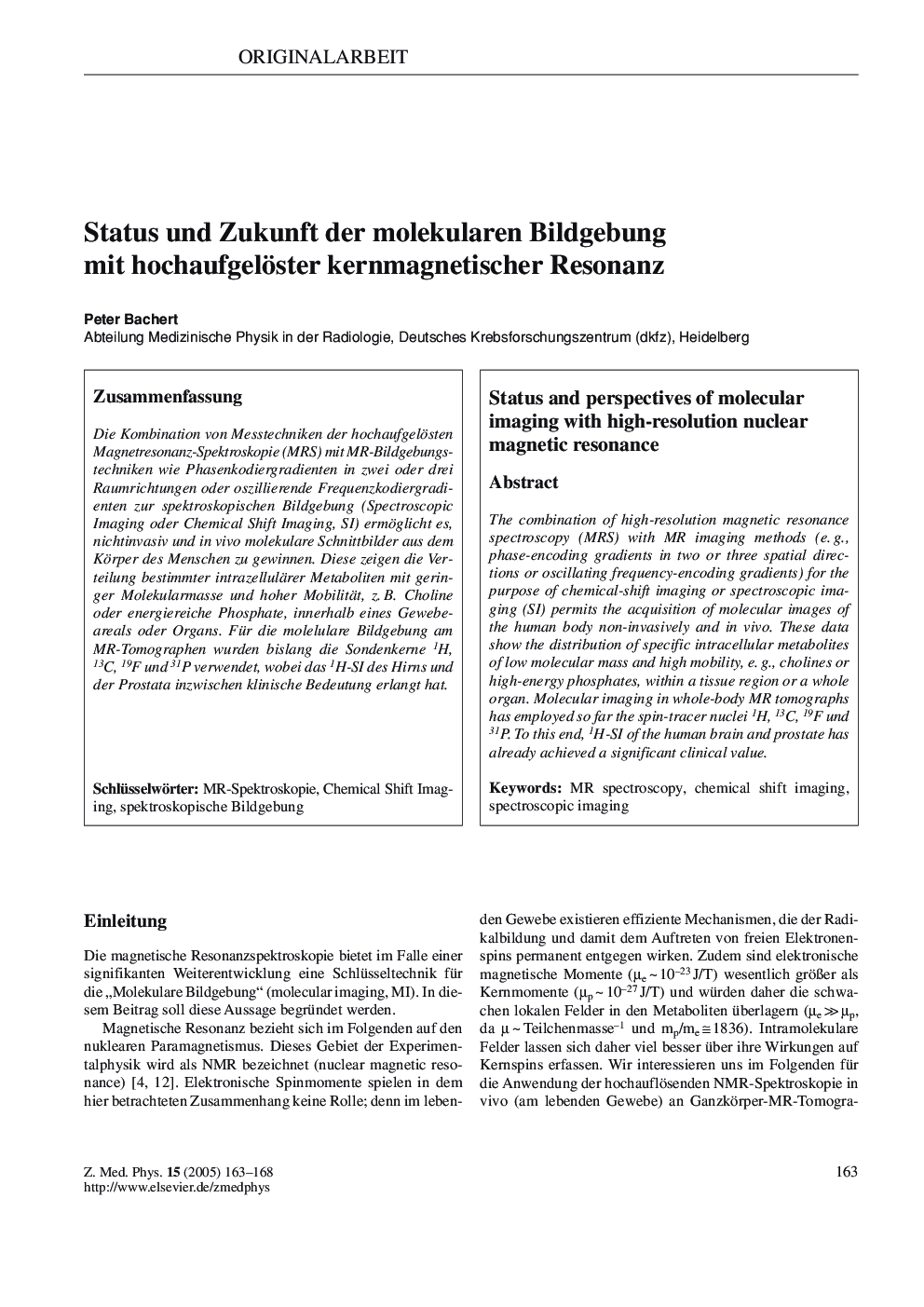| Article ID | Journal | Published Year | Pages | File Type |
|---|---|---|---|---|
| 10733680 | Zeitschrift für Medizinische Physik | 2005 | 6 Pages |
Abstract
The combination of high resolution magnetic resonance spectroscopy (MRS) with MR imaging methods (e.g., phase encoding gradients in two or three spatial directions or oscillating frequency encoding gradients) for the purpose of chemical shift imaging or spectroscopic imaging (SI) permits the acquisition of molecular images of the human body non invasively and in vivo. These data show the distribution of specific intracellular metabolites of low molecular mass and high mobility, e.g., cholines or high energy phosphates, within a tissue region or a whole organ. Molecular imaging in whole body MR tomographs has employed so far the spin tracer nuclei 1H, 13C, 19F und 31P. To this end, 1H SI of the human brain and prostate has already achieved a significant clinical value.
Related Topics
Physical Sciences and Engineering
Engineering
Biomedical Engineering
Authors
Peter Bachert,
